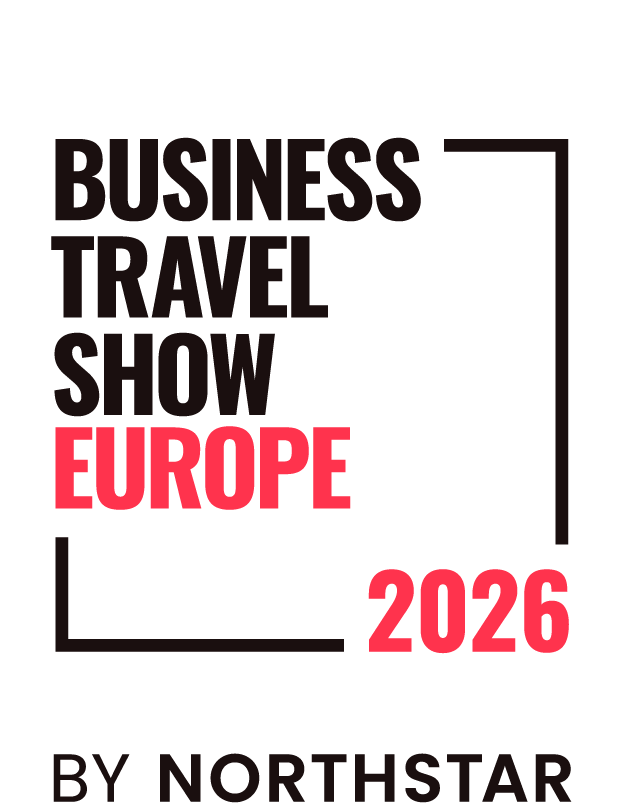Frictionless Business Travel: Corporate Travel Tech in 2025
)
- Original Contribution by: Business Travel Show Europe Content Team
- Updated by: Jonathan Carter-Chapman, Marketing Director, Northstar Travel Group
- Re-published: April 2025
- Topics: Corporate Travel, Travel Technology, Business Travel Trends
- Read Time: 7 minutes
Quick Summary: This blog explores the evolution of frictionless travel in the corporate travel sector. It highlights how technology, personalised services, and traveller education are combining to create smoother journeys. Drawing on post-pandemic shifts, new innovations, and sustainable travel solutions, we share how businesses can improve the business travel experience, mitigate disruption, and enhance traveller confidence - while maintaining cost control and peace of mind.
The Post-Pandemic Evolution of Business Travel
The travel industry has undergone a remarkable transformation since 2022. That year was marred by staffing shortages, unpredictable travel disruptions, and an erosion of traveller confidence. Business travellers faced no-show taxis, airport delays, slow hotel check-ins, and unreliable rail travel due to strikes.
While frustrating at the time, these pinch-points fuelled innovation. Corporate Travel Management (CTM) teams and travel leaders began to reimagine the entire journey, using a mix of innovative technology and human support to build a more resilient and streamlined experience.
Today’s travel environment is stronger for it - with more companies investing in scalable travel management solutions that align with their sustainability goals, budgets, and duty of care responsibilities.
What Is Frictionless Travel in 2025?
Frictionless travel refers to seamless end-to-end journeys, where travellers encounter fewer interruptions, enjoy personalised services, and have the tools to respond to unexpected events. In 2025, this is driven by three pillars:
- Corporate travel technology
- Traveller education and preparation
- Personalised service and support
This isn’t just about efficiency - it’s about reducing stress, offering peace of mind, and making international travel purposeful again. For those managing complex global itineraries, these elements are key to managing travel budgets while maintaining flexibility.
Smarter Tools: The Rise of Corporate Travel Technology
Business travel in 2025 is shaped by intelligent tools that proactively manage complexity and control travel expenses.
- AI in corporate travel: Advanced AI platforms now automate everything from bookings and policy enforcement to itinerary planning. They balance travel budgets, sustainability goals, and personal preferences.
- In-app virtual cards and biometric check-in: Travellers can use facial recognition for hotel or airport entry, reducing delays and paperwork. Virtual cards streamline payments and expense reporting.
- Omnichannel help widgets: These give travellers instant access to FAQs, disruption updates, and rebooking tools - without needing to call a TMC.
- Digital travel credentials: As piloted by ICAO, these are replacing physical boarding passes, with dynamic passes stored in a traveller’s digital ID.
These innovations allow travel management solutions to resolve issues before they escalate - and empower travellers to self-serve when they prefer.
People-First: The Value of Human Support
Even the most advanced technology can’t replace the reassurance and personalisation offered by skilled people. Business travellers still face disruptions - flight changes, weather issues, miscommunications - and they want someone who understands their journey.
Forward-thinking travel management teams are:
- Boosting 24/7 support during peak travel times
- Using data to pre-empt traveller issues, such as delayed trains or high-risk suppliers
- Educating clients about common friction points, like document checks or visa requirements
This mix of proactive service and real-time support is essential to delivering a seamless experience and genuine peace of mind. For example, integrating ISO 31030 guidelines into risk management ensures organisations meet their duty of care obligations.
Bleisure, Wellness and Purposeful Travel
Another factor shaping the business travel experience is the rise of bleisure - the blend of business and leisure travel. Travellers are increasingly extending trips for wellness or personal reasons.
Hotels and travel providers are responding with:
- Flexible work-leisure spaces
- On-site wellness programmes (yoga, mindfulness, fitness)
- Greater control over travel schedules
At the same time, business travel is being scrutinised for its purpose. More organisations now assess whether a trip is essential, aiming for a positive impact by aligning travel with ROI, values, and environmental responsibility. Sustainable travel and meaningful outcomes are now part of the value equation.
Sustainability and ESG-Focused Travel Decisions
Sustainable travel is no longer optional - it’s a strategic imperative. Companies are embracing eco-conscious business travel practices to meet ESG goals.
Organisations now:
- Use platforms that track and offset carbon emissions
- Encourage rail travel over short-haul flights
- Offer incentives for choosing low-impact accommodation and suppliers
Tools like mobility budgets and eco-optimized itineraries make these goals measurable. In fact, mobility budgets are gaining traction as a flexible way to support sustainable choices while keeping costs predictable and employee wellbeing front of mind.
Continuous Improvement: Adapting to a Changing World
Frictionless travel isn’t a static achievement - it’s an ongoing process. Travel managers and TMCs must continuously:
- Monitor service quality (e.g. app usage, phone response times)
- Review traveller feedback to refine touchpoints
- Stay ahead of disruption trends (e.g. strike risk, airline changes)
By combining data, tech, and empathy, they help organisations maximise value, minimise disruption, and deliver exceptional travel experiences.
Key Takeaways
- Frictionless travel blends technology, data and human support
- AI and digital tools enable faster, more personalised journeys
- Human insight still matters for reassurance and problem-solving
- Bleisure and wellness trends are reshaping expectations
- ESG and purposeful travel are guiding trip decisions in 2025
- Managing travel budgets, disruptions, and expenses is essential for a seamless business travel experience
Frequently Asked Questions
Further Reading
- 9 Business Travel Trends to Watch - SAP Concur
- Boarding passes and check-in could be scrapped in air travel shake-up - The Guardian
- Sustainable Travel Management - Global Business Travel Association
Acknowledgement: This blog post was rewritten and updated by Jonathan Carter-Chapman, Marketing Director, Northstar Travel Group.



